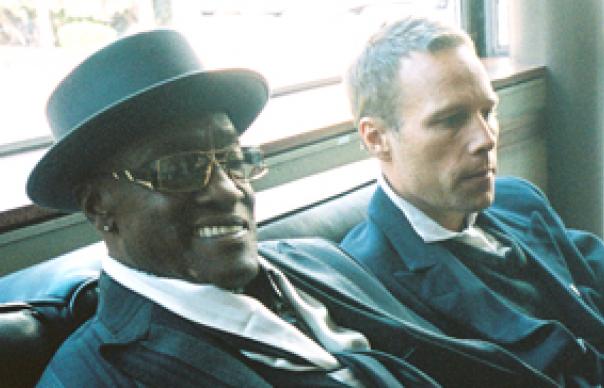AM I BLACK ENOUGH FOR YOU
DIRECTED BY Göran Hugo Olsson
STARRING Billy Paul, Blanche Williams, Kenny Gamble, Clive Davis, Questlove, Schoolly D
***
In 1972 Billy Paul got a dream career break; a worldwide hit single, “Me And Mrs Jones”, that turned the struggling jazz singer into an exemplar of sophisticated soul. The story of an extra-marital affair, “…Mrs Jones” was a mix of intimacy and delight, dressed in the honeyed strings of the Philadelphia Sound with which producers Kenny Gamble and Leon Huff were creating hits for The O’Jays, Harold Melvin, The Three Degrees and more. Paul’s record crossed all boundaries, won a Grammy, with its accompanying album, 360 Degrees Of Billy Paul gaining gold status.
Though Paul scratched the charts in subsequent years, he never scaled the dizzy heights of his signature tune. For his wife and manager, Blanche, it was the choice of follow-up that undermined his career – the funky, black pride anthem, “Am I Black Enough For You”, sent out confusing signals to an audience expecting a romantic ballad. Producer and writer Gamble, she implies, used Paul to further his own militant political agenda.
Swedish director Göran Olsson has made this slender premise the pivot for his documentary about Paul, who at 77 is still an animated performer. It doesn’t hold up. “Am I Black Enough…” tanked (with minimal radio play) but it was, after all, from the same album as “…Mrs Jones”, and became a cult side, covered by Schoolly D among others. Gamble is incredulous at the allegation – “Billy Paul said that? Shoot!” – though his relationship with the singer is compromised; in 2003 Paul successfully sued him for unpaid royalties of half a million dollars.
Olsson modelled his film on Let’s Get Lost, Bruce Weber’s elegiac 1989 portrait of jazz icon Chet Baker, pinning a still from every cut in Weber’s movie on his wall for inspiration. “Let’s Get Lost is black and white, the Fifties, California and heroin,” he says, “we transformed that to colour, the Seventies, Philadelphia and cocaine.”
Nice concept, but Olsson is no visual wizard like Weber, though his movie has a confidential, nocturnal atmosphere. Paul is certainly no fallen demi-genius to set alongside Baker, but he proves an engaging, articulate subject, with a story that stretches back to playing alongside Charlie Parker, and peppered with the usual racial prejudice. His career is, in its way, emblematic of black America’s struggles over the last half century, including a descent into cocaine addiction and recovery, both shared with his wife, who remains a quirky, wilful presence throughout the movie. The pair come across as a jazzy Derby and Joan.
Among those adding context are Schoolly D and the insightful Questlove, from Philly troupe The Roots, but the feeling that the film’s subject has been over-stretched isn’t helped by some crass overdubs of Paul’s live performances. Authenticity starts at home.
NEIL SPENCER


